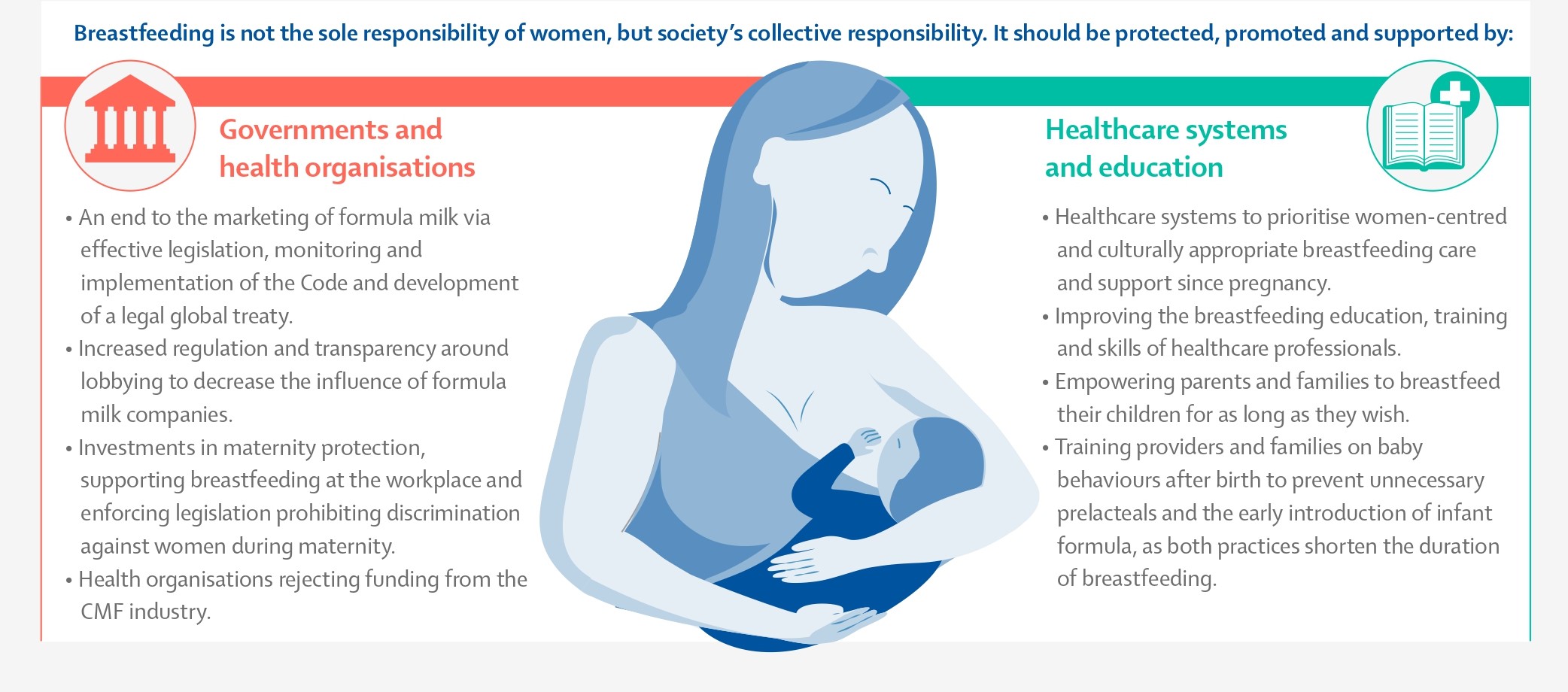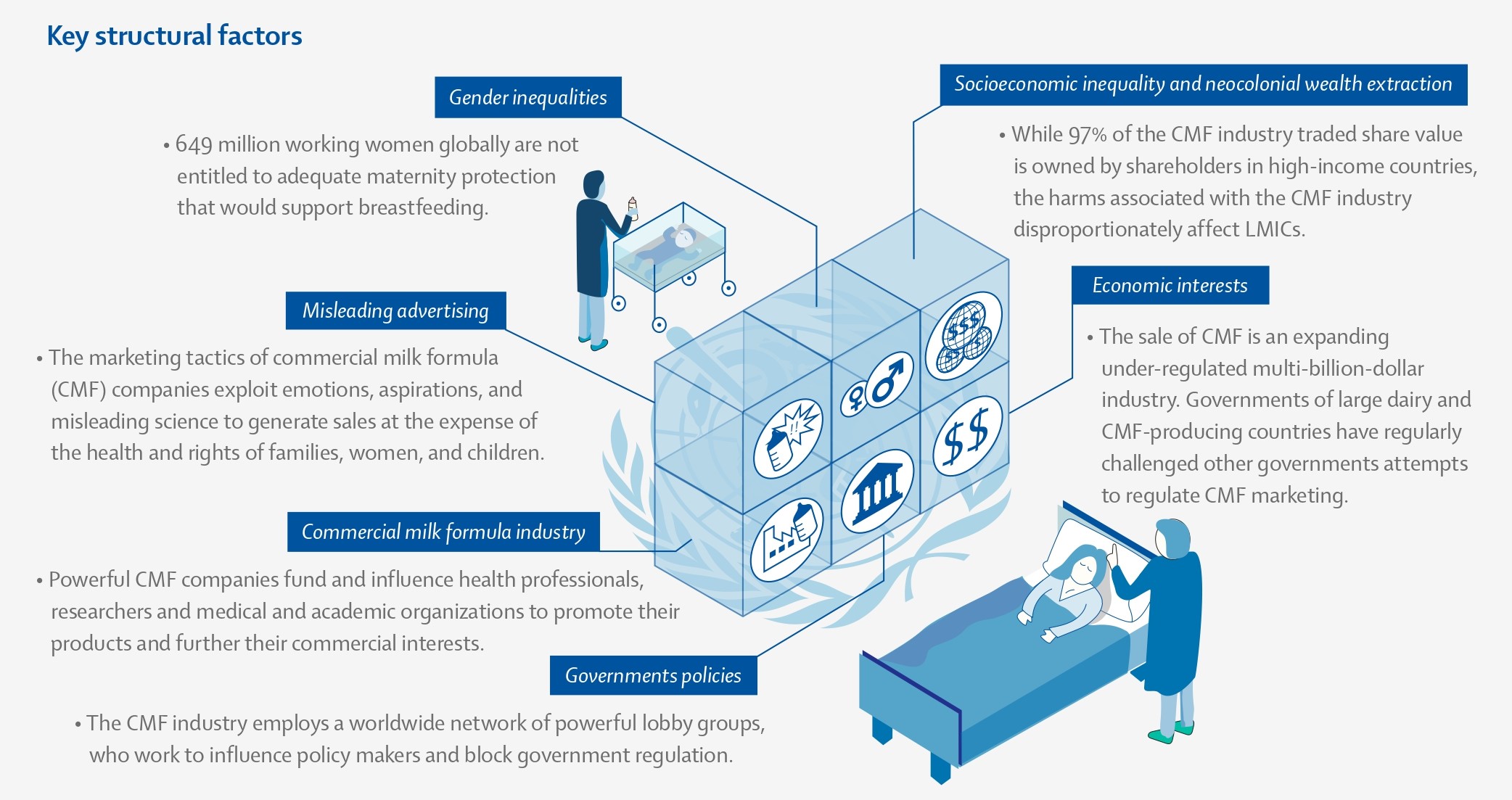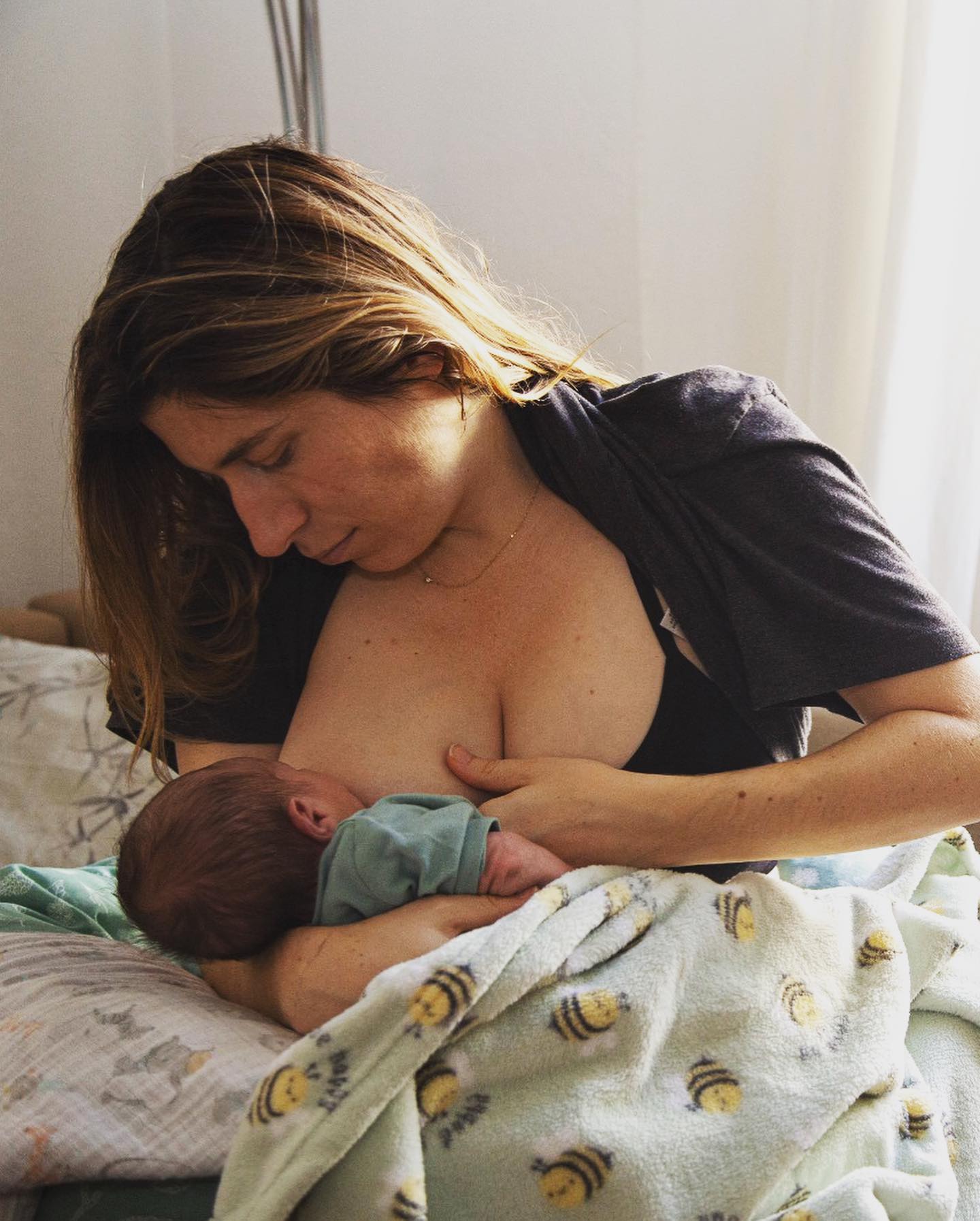Request support on coordination, information management, integration for nutrition outcomes or technical nutrition in emergencies assistance.
التماس الدعم لتنسيق التغذية وإدارة المعلومات والتغذية في حالات الطوارئ
Demander un appui pour la coordination de la nutrition, la gestion de l'information et la nutrition dans les situations d'urgence
Buscar apoyo para la coordinación de la nutrición, la gestión de la información y la nutrición en situaciones de emergencia
Solicite apoio para coordenação em nutrição, gestão de informação e nutrição em emergências
March is a month of reflection upon women’s rights – a time when individuals, groups and organisations translate their hopes for gender parity into calls-to-action. In the nutrition sphere, there are several aspects that negatively impact the health and nutrition of women and girls due to oppressive gender norms and gender-based violence (GBV). One such aspect involves the barriers women face globally when deciding how to feed their newborn babies.
The international partnership led by UNICEF and WHO – the Global Breastfeeding Collective – is exclusively dedicated to protecting the right to breastfeed during motherhood. Backed by evidence, they affirm the countless benefits of this practice, including its role in pursuing United Nations Sustainable Development Goal 5: Gender Equality.

The importance of breastfeeding and its collective nature
Women should be able to breastfeed if they wish to, and doing so will have tremendous benefits for society – in all high-, middle- and low-income countries. But they can’t do it alone.
Mothers need help from their families and society, and support from governments, health professionals and breastfeeding counsellors. They require supportive regulations and programmes, and access to the necessary knowledge to guide their choices.

Common barriers women face around breastfeeding
Women face widely different challenges concerning newborn feeding, depending on their overall circumstances. Some recurring issues are:
- Lack of support to overcome challenges. Sore nipples, engorged breasts, failure to latch and unannounced milk leakages are common challenges in the early days of breastfeeding a newborn. But these challenges can be overcome with the right support.
Breastfeeding is not easy, neither physically nor psychologically. Mothers can also face many mental health challenges like anxiety about unsettled infant behaviours or lack of confidence in their decisions. - Insufficient information and professional advice. One factor that prevents many women from persevering with breastfeeding after struggling in the initiation period – and consequently missing out on its benefits – is not having enough information and/or unbiased advice from health professionals. Some women also have no access to prenatal care and lactation counselling.
- Unsupportive work environments. Limited or no maternity leave, and other constraints faced by women in their workplaces, play a key role in their decision to breastfeed. Nowadays, around 830 million female workers, mainly in developing countries, do not count on supportive policies at work. And 80% of them are not covered by any law, which is often the case for migrants, domestic or temporary workers, agricultural labourers, and indigenous people.
- Misinformation from the infant food industry. One of the main reasons women stop breastfeeding is self-reported insufficient milk, which tends to be misinterpreted by health professionals and parents alike. Together with the pervasive and exploitative marketing influence of the commercial milk formula industry, this can undermine women’s confidence in their ability to breastfeed successfully and tilt women’s decision towards using commercial milk formula. This is very concerning and against WHO’s International Code of Marketing of Breast-milk Substitutes.
- Absence of household support. Mothers need their families and communities to help them. And this implies changes in household dynamics so women can focus on learning to breastfeed with their babies.
- Cultural barriers: Many mothers are concerned about breastfeeding in public spaces, and some have to fight to overcome cultural norms.

How Breastfeeding contributes to Gender Equality?
The intersection between breastfeeding and gender equity is complex and multi-layered. Far from exhaustive, below are some points that can help illustrate the importance of addressing gender inequalities in neonatal care:
- Protecting all mothers’ rights to breastfeed gives women greater reproductive freedom. When they can decide what to do with their bodies, after considering accurate and unbiased information, and with the support of their communities, they are truly able to take control. Only then, mothers are able to exercise their right to bodily autonomy without fear, discrimination or pressure.
- Women’s decision whether to breastfeed, and how to do it, should not have a negative impact on other aspects of their lives. If breastfeeding is perceived as a constraint by mothers because it prevents them from achieving other non-maternal opportunities, then it could contribute to gender inequality, and translate into lower breastfeeding rates.
- It helps with birth spacing because the hormones released in the women's body when breastfeeding prevent ovulation, resulting in lactational amenorrhoea. With the right support and sufficient information, it can help women finish their studies and achieve their professional goals, which will contribute to their economic independence.
- It is an empowering practice because being able to breastfeed means mothers can feed and protect their babies from illness with their own self-produced milk. This can become crucial for the baby’s survival during emergency situations.
- It is beneficial for women’s health: extensive literature attributes major health benefits to successful breastfeeding practices, such as reduced risk of breast and ovarian cancer, heart disease, diabetes and high blood pressure.
The Alliance's co-lead, Justine Aenishaenslin, in the breastfeeding spotlight
Justine is a member of the GNC Technical Alliance Leadership Team, and she is breastfeeding her first child. She has kindly taken the time to tell us about her experience so far.

● Why did you decide to breastfeed?
This year I welcomed my first child. After years of working on maternal, newborn, child health and nutrition programmes that promote breastfeeding and stress its importance, I knew that I wanted to try to breastfeed my child.
● What have been the biggest challenges?
Despite knowing through my work that breastfeeding is a new skill that takes time and effort for a mom and baby to learn, the challenges I faced in breastfeeding were still a surprise to me and hard to navigate at first.
I experienced exhaustion, issues with oversupply, clogged ducts, struggled to figure out how to make sure my baby got a good latch, sore nipples, and anxiety about whether my baby was getting enough food. All this left me in tears at 3 am, more than once, in the first few weeks of breastfeeding. I had moments where I thought, can I really do this?
● What have you found most helpful while breastfeeding?
What I found most important during that time was to have a support system around me to guide and encourage me.
Giving birth in a baby-friendly hospital meant I had nurses around me who promoted and supported me in breastfeeding immediately after the birth of my son. I had a midwife who visited me regularly at home in the weeks after his birth and helped me deal with the challenges I was facing. I was able to attend a new mother's group in my community run by a lactation consultant, where women could share their lived experiences with breastfeeding.
I also knew where to access accurate information and advice about breastfeeding online. In the first days and weeks after birth, I had my husband and my mum (who had also breastfed me and my brother) supporting me at home. Right after birth, they would bring the baby to me when it was time to feed him, they prepared food and looked after household chores. This all gave me time and space to focus on breastfeeding my baby.
All the various forms of support that surrounded me helped me to continue breastfeeding when I felt it was futile or I was in pain. My support networks encouraged me to persevere through the challenges of breastfeeding which were pivotal for me to breastfeed my son.
● What would you say to other mums or mums-to-be?
I am so thankful for all the other women who shared their experiences about breastfeeding and were not afraid to say that breastfeeding can be challenging but with support, it's possible! We often invest a lot of time in preparing for birth, but I also think it is important to prepare for breastfeeding. I would encourage other mums or mums-to-be not to be afraid to seek out support if they encounter challenges with breastfeeding. There is support out there!
I am lucky enough to live in a country where I have had access to excellent pre-and post-natal care, I have 1 year of paid maternity leave and breastfeeding in public spaces is relatively normalised. This has given me the space and time to breastfeed my son and has removed many stressors that can pose a challenge to breastfeeding.
On top of that, I have the privilege of living in an environment that is free from civil unrest, my household doesn’t suffer from food scarcity and hasn’t been displaced. The reality for many women around the world who may encounter challenges with breastfeeding their child must navigate them while simultaneously living through these complex experiences.
My own experience has reinforced for me the critical importance of providing practical support for women to breastfeed. Many women around the world are not given adequate time, space or support to breastfeed their child – this needs to change.

How does the Alliance support Gender Equality?
To help answer specific queries related to the intersection between Nutrition and Gender, the GNC Technical Alliance counts with a Gender Workstream.
Feel free to contact the Alliance's Technical Support Team about any Nutrition in Emergencies queries.
Other related resources:
>> Webinar: Providing Breastfeeding Counselling During Emergencies: How Can We Do That? – available in English, Spanish, French and Arabic.
>> Breastfeeding and the Sustainable Development Goals Fact Sheet
>> Research on breastfeeding and climate change
